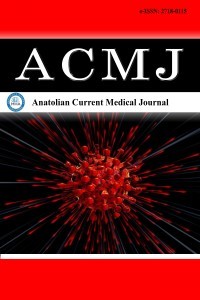1.
Wagenlehner FM, Lichtenstern C, Rolfes C, et al. Diagnosis andmanagement for urosepsis. Int J Urol 2013; 20: 963-70
2.
Sarikaya K, Senocak C, Ciftcit M, et al. The effectiveness ofpercutaneous nephrolithotomy for the treatment of largeimpacted upper ureteral stones. Anatolian Curr Med J 2021;3:165-70.
3.
Ryan J, O’Neill E, McLornan L, Urosepsis and the urologist. CurrUrol 2021; 15: 39-44.
4.
Nortina Shahrizaila, Helmar C Lehmann, Satoshi Kuwabara.Guillain-Barré syndrome. Lancet 2021; 397: 1214-28.
5.
Van den Berg B, Bunschoten C, van Doorn PA, Jacobs BC.Mortality in Guillain-Barré syndrome. Neurology 2013; 80:1650-54.
6.
Hao Y, Wang W, Jacobs BC, et al. Antecedent infections inGuillain-Barré syndrome: a single-center, prospective study. AnnClin Transl Neurol 2019; 6: 2510-17
7.
Leonhard SE, Mandarakas MR, Francisco A, et al. Diagnosis andmanagement of Guillain-Barré syndrome in ten steps. Nat RevNeurol 2019; 15: 671-83.
8.
Fischer A, Avila J. Guillain-Barré syndrome following anextended-spectrum beta-lactamase Escherichia coli urinary tractinfection: a case report J Cureus 2021; 13: e19673.
9.
Kono Y, Nishitarumizu K, Higashi T, Funakoshi K, Odaka.Rapidly progressive Guillain-Barré syndrome followingEscherichia coli infection. M Intern Med 2007; 46: 589-91.
10.
Yuki N. Infectious origins of, and molecular mimicry in, Guillain-Barr and Fisher syndromes. Lancet Infect Dis 2001; 1: 29-37.

